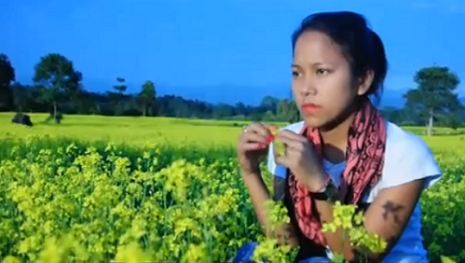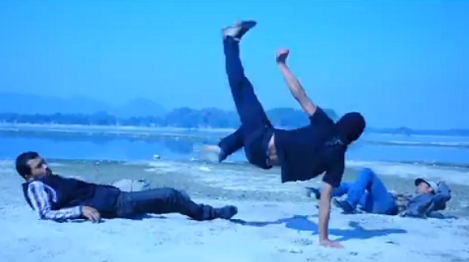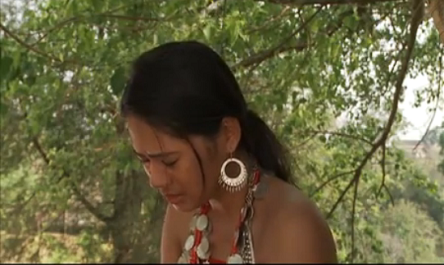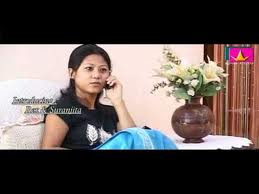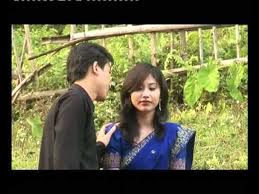Kokborok cinema
Very little has been written about Kokborok films other than |
Contents |
The authors …
… of Indpaedia’s articles on Kokborok cinema are: Indigenous Herald <> Osservatore Romano <> Tripura Chronicle <> The Telegraph Wednesday, May 14, 2003 <> North-East cinemas: Interesting times/ By Utpal Borpujari, Deep-Focus, December 30, 2012 Utpal Borpujari <>Deep-Focus <>Ignore, and be ignorant. Cinema from the Northeast has verve. By Utpal Borpujari Outlook <>Teresa Rehman Tehelka/ Mishingrenaissance September 17, 2008<>Namrata Joshi Outlook
Kokborok cinema: a history
Kokborok is the language of the tribal people of Tripura, India.
Writing in 2002 Zia Haq Telegraph had called Mathia ‘Tripura’s first film in Kokborok.’ However, elsewhere it has been referred to as ‘the 3rd feature film ever in Kokborok.’ Which were the first two? In the absence of the specific names of Kokborok films made before Mathia, Indpaedia will accept Mathia as the first feature film in Kokborok.
Kokborok films started off on an idealistic note—condemning witch hunts and heartless developmental projects.
Then came films like Chethuang, which is based on a folk tale of Tripura.
Kwmajak has its roots in a true story that took place in the state.
However, most films that followed have been avowed entertainers.
Phaan has fisticuffs, unarmed combat and comedy.
Sampily 2 has the martial arts.
All modern Kokborok films have competent photography that brings out the beauty of the state. Their songs have pleasant tunes and have been arranged and recorded most professionally. (After all, this is the stste of Sachin Dev Burman and Rahul Dev Burman, not to mention []Sourabhee Debbarma]].)
Reconstructing the history of Kokborok cinema is going to be impossible unless the Kokborok people--especially those who have made films in Kokborok--pool in efforts and knowledge. There is no written material available on the Web--except for the two masterpieces, Mathia and Yarwng, about which copious amounts are available, and in the greatest detail.
Indpaedia has assembled whatever material is available on the Web. The rest is up to the Kokborok people to contribute by sending us materials on our Facebook page mentioned above.
The films
Mathia (2008)
See Mathia
Yarwng (2008)
See Yarwng
Ganthi (2010)
A digital Kokborok Feature Film
Sponsored By T.T.A.A.D.C, Khumwlwng, Tripura, Jirania.
Directed & Produced By Kamal Koloi
Nwng bai...
Nwng bai... (2010) A film by Rex Debbarma Directed by Sarat Reang Music Bishwanath debbarma.
Paitawdi
by Sajib Tripura Kokborok HD full length movie
Sampily 2
by Sujit Deb Barma
Phaan
Cops, tough guys in tight clothes in black suvs, fights, hero’s smart dialogues, like Hindi-Urdu films of 70s, guns, tomfoolery Dir Krushaal Reang, Abhee Debbarma.
Chethuang
Screenplay & Directed by Kamal Koloi based on Popular Tribal Folk tale of Tripura
Kwmajak
Kwmajak (2014)
83 minutes
Produced by Satadeep Saha and written and directed by Soham Saha
Cast: Surojit Debbarma & Rinku Dvrma & Hrishie Raj
The film is based on a true story of the state. It was the first Kokborok movie that went in for a commercial release. It was first screened for two shows every day at SSR Rupashi cinema. It did well at the box office.
While the film is in Kokborok, there are some Bengali dialogues, too.
Locations shot at: Khumlwng, Bishramganja, Bishalgarh and Jirania.
The film is about searching for the hero who is shown missing since the beginning of the film.
Camera, lights and all other equipment needed to shoot the film were brought from Kolkata. The film was edited in Kolkata as well.
The filmmakers
Sampari Pictures
Since roughly 1997, Sampari Pictures- the only Don Bosco film production company registered under Eastern India Motion Picture Association- yesterday- produced 17 major film projects including documentaries and two award winning full length feature films (Mathia [Bangle] & Yarwng [Roots] ) in the tribal language.
Father Pulinthanath
See Father Joseph Pulinthanath, sdb
See also
Father Joseph Pulinthanath, sdb
Kokborok cinema
...and also
Assamese cinema: This page has, at the bottom, links to several other articles in Indpaedia.com related to Assamese cinema.





